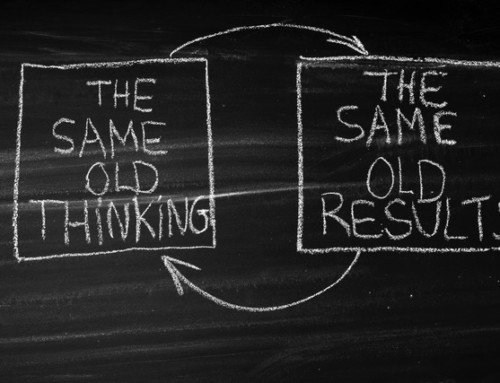Haven’t taken a decent vacation for longer than you can remember? You’re not doing yourself or your career any favors.
Vacations on the Rebound
Back in 1980 the average American took about three weeks of vacation a year, according to Project Time Off’s annual State of the American Vacation 2018 survey. After bottoming out in 2014 at two weeks, paid vacation, our second most desired benefit after health care, is making a healthy rebound. Today’s average is now 17 days.
Are you making the most of your vacations, for yourself and your career? Here’s why and how.
Skeptical?
It’s important to take time off from work. Numerous studies reveal time off from work improves your physical, mental and emotional health. The research also points out that when employees take paid-time off they are more engaged and productive – overall productivity increases. Even bosses agree!
- Shawn Achor, author of “The Happiness Advantage: The Seven Principles of Positive Psychology That Fuel Success and Performance at Work,” cites research from the American Psychological Association that found when “the brain can think positively, productivity improves by 31 percent, sales increase by 37 percent, and creativity and revenues can triple.”
- Managers believe that using vacation time is important to maintaining team energy levels (80% report this feeling describes them “perfectly” or “very well”); giving employees better attitudes (74%); and making employees more productive (67%). – “The Mind of the Manager: What Your Boss Really Thinks About Vacation” Project Time Off Survey
- The majority – 78% — of bosses — agree that vacation improves an employee’s focus and 81% also believe it also alleviates burnout. – State of the American Vacation 2018
- Arianna Huffington claims “We now live in a world where a manager’s approval is needed not to take vacation. This would have been unthinkable even three or four years ago.”
Excuses Excuses
Yet, despite mounting evidence on the importance of vacation, 52% of all Americans don’t use all of their vacation time, according to US Travel Association research. A 2017 Harris Survey for Glassdoor on vacations unearths a deadly vacation-killer triumvirate: Fear, guilt and workplace pressure. Wait too long, though, and even your colleagues will tell you to go, as in the irreverent Elite Daily’s “23 Signs You Need To Take A Vacation Like Right F*ing Now.”
The Great Escape
Get past all that! You are going on vacation. Those fears are unfounded, especially with the right planning. Set yourself up for a great vacation and a smooth, productive return.
Ask Early
- Ask for your time off early in the year to get the dates that you prefer. It gives you more time to be strategic about organizing and delegating your work while you’re away.
- Bonus points: Coordinate with your team mates for consistent coverage while everyone gets a fair chance at the dates that are best for them. Your boss will also appreciate your proactive planning.
Countdown Planning
- 1 year prior: Fend off vacation cost financial fears by setting up a vacation fund. You won’t miss it when it’s a small up-front auto-withdrawal, but It adds up fast enough to pay for your credit card bills when you return. You’ll be glad you did it.
- 1 month prior: Share your vacation schedule with your clients (internal and external) and vendors in writing. Include the dates you will be out and coverage plan. Plan what needs to be done in advance and what can be pushed out to when you return.
- 2-4 weeks prior: Make a list of your to-dos, prioritize, delegate, delay or decide if it really needs to be done at all.
- 1 week prior: Prepare your backups. Make sure they have the tools, information and skills to cover for you while you’re away. If you discover gaps in coverage, you’ll have time to make additional arrangements.
- 2 days prior: Write your out-of-office message for email-auto-response and work voicemails. include the dates you will be gone, when you return and who to contact in your absence. These beyond the run-of-the-mill out-of-office messages can even boost your career.
- 1 day prior: Activate your out-of-office messages. That way if anything comes up before you go, rather than scrambling at the last minute, you have the option on whether to complete it before you go or ask someone else to cover it. As Zig Ziglar quipped “Isn’t it amazing how much stuff we get done the day before vacation?”
Unplug
During your vacation reap the rewards of time away from the office. Spend quality time with your traveling companions or family.
- Zac Carman, CEO of Consumer Affairs, is such a vacation advocate, her organization provides a $1000 stipend for it. “We do it because we find it increases productivity. This is especially true when you can be gone for a week at a time, turn off your phone and quit thinking about work.”
- However, especially if you manage other people, you may not be able to completely unplug from work on vacation. Glassdoor’s vacation survey revealed “While on vacation, 29 percent of employees who took vacation/time off from work in the past 12 months report being contacted by a co-worker (up from 24 percent in 2014) about a work-related matter, and one in four (25 percent) report being contacted by their boss (up from 20 percent in 2014)”
Given that, let your team know when it’s okay to contact you and stick to that plan. Generally early morning for an hour while others are still asleep or in the late afternoon/early evening before your night time activities begin are best.
- The brain has more room for creative thinking and problem solving when we unplug from work. Bring a notebook to capture spontaneous ideas that come to you while you’re away. Capture them on paper in the moment, then relax and let it go. That way you don’t have to try to remember it, but it’s ready for you to revisit when you return.
Return & Re-engage
When you return
- Ease in. Give yourself a day or two before you schedule important meetings. Get the lay of the land by checking in with your team and coworkers as soon as you return.
- Email triage. Check your email, but do it with purpose and intention. Sort through the most important/urgent messages from your boss or key clients and respond to them first. Delete promotions, newsletters and junk mail. Prioritize the remaining messages by deciding which ones require immediate response versus which can wait for the next few days.
Repeat
Sage Wilcox, author of The 2-Hour Vacation says “A proper vacation does three things. It takes you away from the stresses and demands of your daily life; it gives your body time to heal and rejuvenate; and, it invigorates your mind by returning you to your natural rhythm.” Who doesn’t need that, at least once a year?
Play smart. Have fun. And be successful!
If you’re an employer, actively encouraging and allowing your employees to take paid vacation time is good for business. The Project: Time Off research found that employees whose companies encourage vacation are much happier with their jobs than those who work at places where it’s not. Even if you don’t buy into vacation’s role in improved productivity, employees prefer to stay where there’s room to play.
Career Savvy Vacation Secrets
Connie Dorigan, Founder and Director of Recruiting, sees the food processing industry as the link between good living and good people. As the West Coast’s most experienced and trusted food processing recruiter, she also provides Executive and Career coaching and lots of free job search tools. Once you’ve connected with Connie, you’ll always be connected. For more information please visit her website at www.dorigan.com or call 503-635-8565.
© 2019 Connie Dorigan. All rights reserved.
This is a general interest article and does not constitute specific or legal advice.





